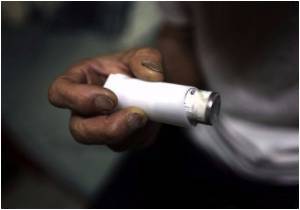A new study has suggested that there is no apparent link between asthma and tooth decay.

The lead author of the study was Gerardo Maupome, who is a professor of preventive and community dentistry at the Indiana University School of Dentistry.
"We found little evidence to suggest that asthma causes tooth decay. In fact, the two largest studies we reviewed found that children with asthma appear to have fewer cavities than others. This may be because their parents are used to taking them to health-care providers, and routinely bring them to the dentist," said Maupome.
While not apparently associated, tooth decay and asthma are the two most prevalent chronic childhood diseases in the United States.
The author also points out that children who use nebulizers to control their asthma may be inadvertently increasing their frequency of exposure to sugars because these nebulizers use fructose to deliver therapy.
The frequency and the amount of certain sugars consumed are major factors leading to cavities.
Source-ANI
 MEDINDIA
MEDINDIA



 Email
Email










